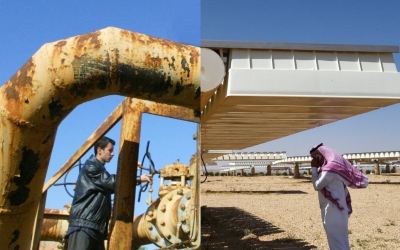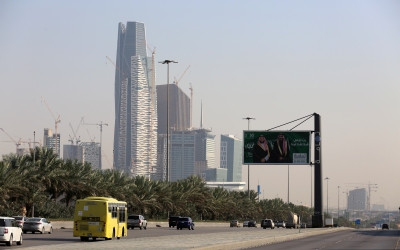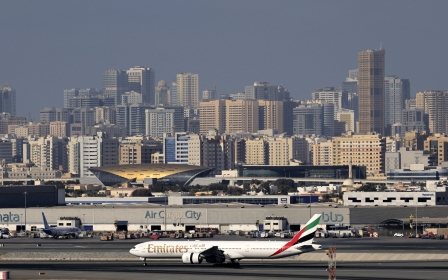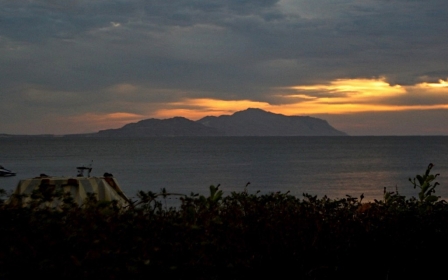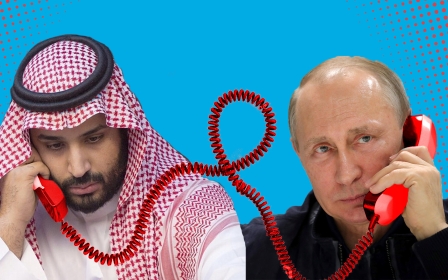OPEC+ talks abandoned after Saudi Arabia and UAE clash over oil output
A meeting of OPEC+ ministers that was set to convene on Monday has been postponed indefinitely after two days of discussions last week failed to quell the United Arab Emirates' rejection of a proposal to extend a pact to curb oil production - a move that raised tensions with Saudi Arabia.
OPEC's Secretary-General Mohammad Barkindo announced the cancellation of the meeting on Monday, hours after the group had been set to continue talks in an attempt to reach an agreement with the UAE.
Barkindo did not say when or if the talks were set to resume, but an OPEC statement later said that "the date of the next meeting will be decided in due course".
The OPEC+ group (comprising the 13 OPEC members plus 10 additional oil-exporting countries, including Russia, Bahrain and Mexico) has raised oil output little by little since May, after cutting almost 10 million barrels per day (BPD) last year when the coronavirus pandemic suppressed demand.
The output cuts have been gradually relaxed and currently stand at about 5.8m BPD.
The current proposal, which the UAE went along with, is to increase output each month from August to December by 400,000 BPD, providing oil markets with an additional two million BPD by the end of the year.
However, the talks hit a snag when the UAE rejected a suggested extension of gradual increases until the end of 2022, from a current end date of April, criticising it as unfair.
On Monday, two OPEC+ sources said there had been no progress in resolving the matter ahead of the now-cancelled meeting, which was scheduled to begin at 13:00 GMT.
The UAE is upset about the baseline from which its production cuts are being calculated and wants the quota raised to reflect its current production capacity. Abu Dhabi has invested billions of dollars to increase its production capacity and says its baseline was set too low when OPEC+ originally forged their pact.
It has also argued that it was not alone in requesting a higher baseline, as other member states such as Azerbaijan, Kuwait, Kazakhstan and Nigeria had requested and received new ones since the deal was first agreed last year.
Gulf divergence
Decisions in OPEC+ must be unanimous. And while the agendas of its meetings are normally set by Russia and Saudi Arabia, this time they were confronted with the UAE's refusal to toe the line.
"It is the whole group versus one country, which is sad to me," Saudi Energy Minister Abdulaziz bin Salman told Bloomberg TV.
In a separate interview with Al-Arabiya television aired late on Sunday, Abdulaziz bin Salman called for "a bit of rationality and a bit of compromise" to secure the deal.
Meanwhile, UAE Minister of Energy and Infrastructure Suhail Al Mazrouei told CNBC on Sunday that "For us, it wasn't a good deal."
Mazrouei said that while the UAE was willing to support a short-term increase in oil supply, it wants better terms through 2022.
The dispute reflects a growing divergence between Saudi Arabia and the UAE.
The two Gulf heavyweights had built a regional alliance, combining financial and military muscle to fight a conflict in Yemen and project power elsewhere.
But the UAE has supposedly withdrawn from military action in Yemen, while Saudi Arabia has sought to challenge Abu Dhabi’s dominance as the region's business and tourism hub.
Abu Dhabi also agreed to normalise relations with Israel last year, while Riyadh did not make a similar move.
Middle East Eye propose une couverture et une analyse indépendantes et incomparables du Moyen-Orient, de l’Afrique du Nord et d’autres régions du monde. Pour en savoir plus sur la reprise de ce contenu et les frais qui s’appliquent, veuillez remplir ce formulaire [en anglais]. Pour en savoir plus sur MEE, cliquez ici [en anglais].


